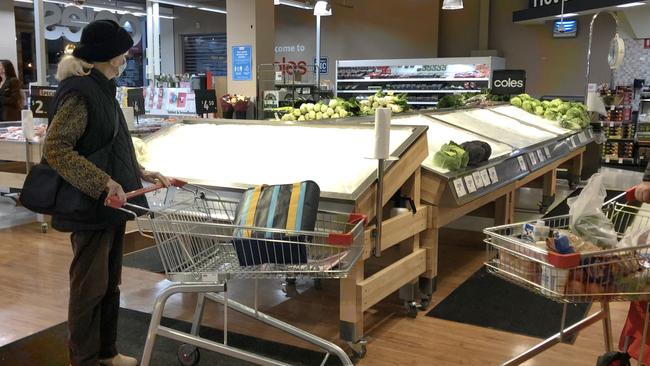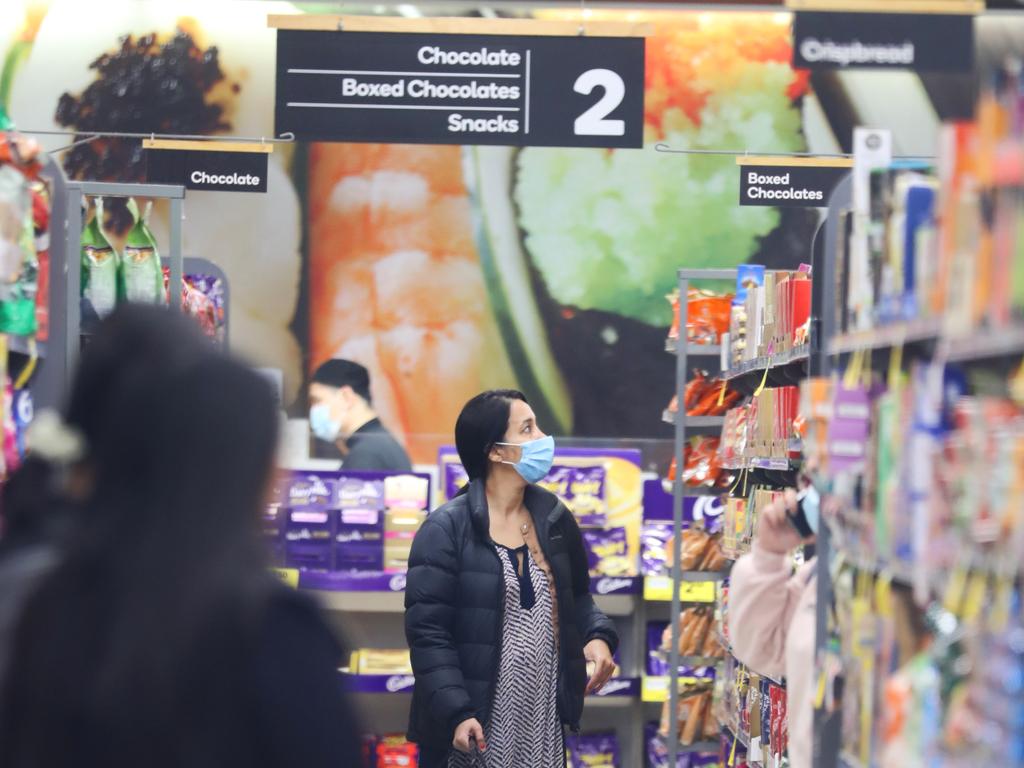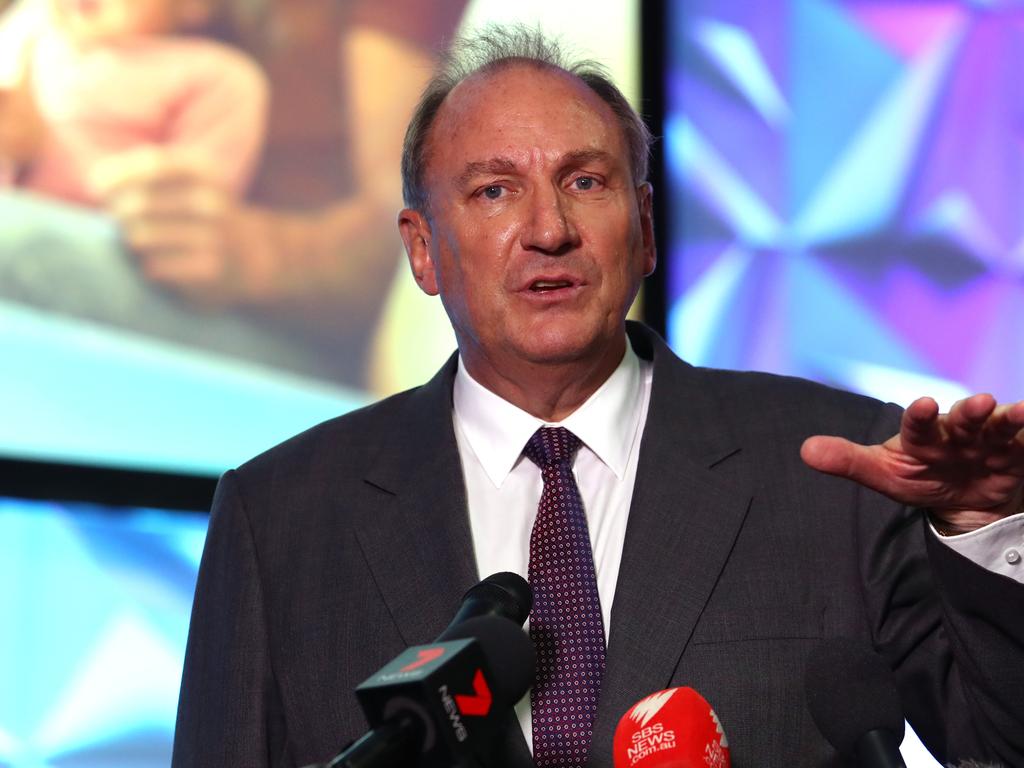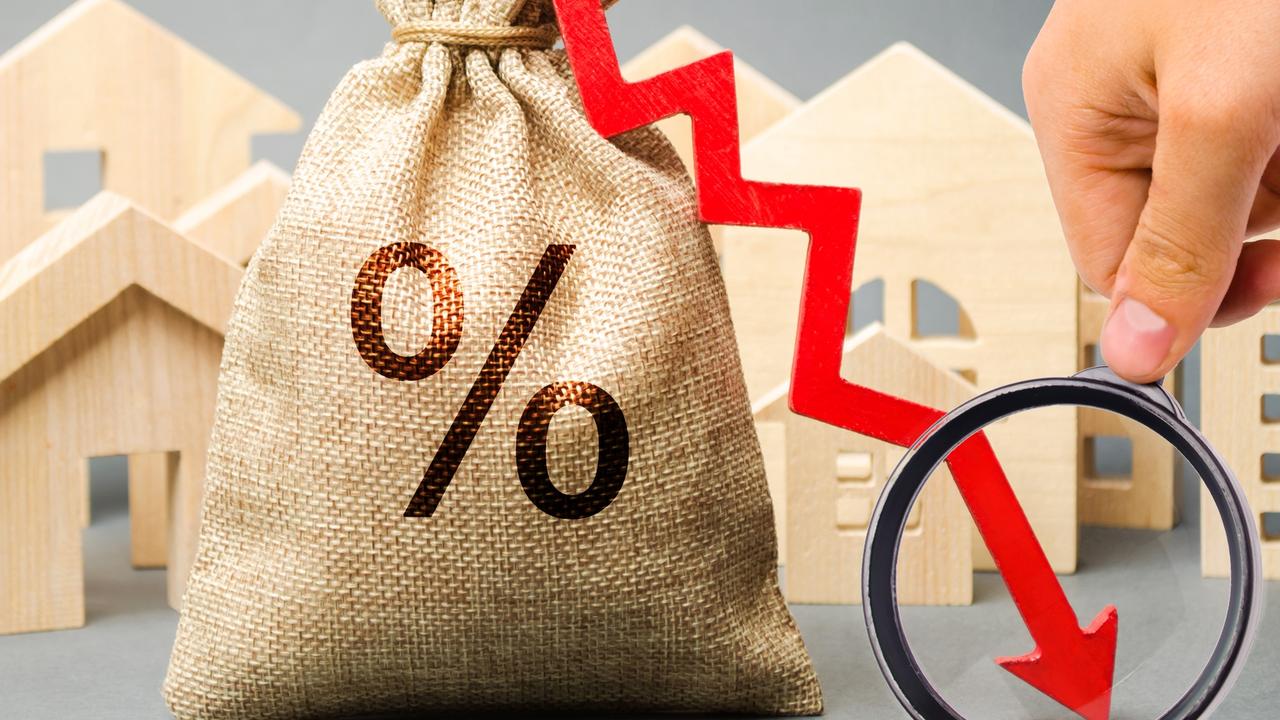Coronavirus Australia: Supermarket warns on food supplies with threat of lockdown restraints
Fears grow that lockdowns could strain supplies across the nation, with Melbourne and regional Victoria major players in food processing.

One of the nation’s biggest supermarket operators has issued a warning to Prime Minister Scott Morrison the tougher COVID-19 lockdown across Victoria will lead to national shortages, fresh panic buying and could force more frequent visits to the shops as consumers struggle to fill their baskets.
The appeal was made through the Canberra-backed Supermarkets Taskforce, a grouping of major supermarkets convened to co-ordinate supplies during the COVID-19 pandemic,
The supermarket, which declined to be named but was confirmed by The Australian, made the approach to the Neville Power-chaired National COVID-19 Commission advisory board, urging that committee to take concerns over continuity of grocery supply directly to Mr Morrison.
The Supermarket Taskforce has also raised with the Department of Home Affairs concerns over stage 4 business restrictions that come into place on Friday that will slash the capacity of abattoirs as well as severely constrict the operation and productivity of distribution centres and supply chains.
The move came as The Australian revealed online on Wednesday that 100 top business leaders have directly pleaded with Victorian Treasurer Tim Pallas at a Business Council of Australia organised crisis meeting where they called on the workplace restrictions to be eased to avoid disruption to supply chains of consumer goods, including food, and as well as national shockwaves that would follow freezing of parts of the state’s industry.
There is growing anxiety within the $90bn grocery industry that the Victorian government’s restrictions, particularly cutting back workforces at distribution centres by one third, will lead to food shortages that will not be able to be replenished in the six weeks of stage 4 restrictions.
Fears are also growing that lockdowns could put a strain on supplies across the nation given Melbourne and regional Victoria is a major player in food processing.
When panic buying was first triggered in March, producers and supermarkets were able to ramp up supplies and quickly stock empty shelves, but this time that won’t be possible as heavy regulations on workplaces that are allowed to remain open makes that impossible.
The Victorian government’s clampdown on workplaces — including the number of workers allowed in a single facility — could actually be counter-productive to the aims of suppressing COVID-19 outbreaks, as disruptions to grocery supplies and empty supermarket shelves could force consumers to do more than the legally permitted once-a-day shop.
The Supermarket Taskforce has argued that by pulling back on the strict regulations it would allow a much stronger flow of groceries, encouraging people to only shop once a week and then helping to minimise public interactions and limit COVID-19 infections.
The supermarkets also fear the Victorian government’s harsh restrictions could spark the kind of panic buying witnessed in March when the coronavirus pandemic first emerged in Australia, triggering scenes of people stripping shelves of products like toilet paper, rice and pasta as well as fights breaking out in the aisles.
The Department of Home Affairs convened the Supermarket Taskforce in March and is made up of the leading retailers in the nation’s $90bn grocery sector, Woolworths, Coles, Aldi and Metcash. Authorised by the Australian Competition and Consumer Commission, the taskforce is able to co-ordinate to ensure consumers have reliable and fair access to groceries during the COVID-19 pandemic.
Mr Power, the executive chairman of the National COVID-19 Commission, has been tasked by the Prime Minister to come up with ideas to refire and revitalise the Australian economy as it pulls out of the health crisis, and is joined by leading business identities such as former Telstra boss David Thodey, ANZ director Jane Halton, transport veteran Paul Little and former Dow Chemical boss Andrew Liveris.
Meanwhile, leaders of Australia’s biggest companies held crisis talks with Victorian Treasurer Mr Pallas on Wednesday night, urging him to ease the restrictions that will force businesses to cut workforces at their Victorian distribution centres by 33 per cent.
Woolworths and Coles are among those to say the measures the Victorian government enforced to curb the state’s rampant spread of coronavirus, put the transport of essential items across the country at risk — not just in Victoria — fuelling a second wave of nationwide panic buying.
Other retailers including JB Hi-Fi, The Good Guys, Harvey Norman, Myer, David Jones, Big W and Super Retail have warned customers to brace for a partial or complete closure of their networks after the stage 4 restrictions come into force at midnight on Friday.
It comes as S & P Ratings put Victoria’s AAA rating on “credit watch with negative implications” following Mr Andrews’s declaration of a state of disaster as Victoria’s coronavirus outbreak spirals out of control, with a record 725 new infections recorded on Wednesday.
The retailers have secured support from federal Treasurer Josh Frydenberg who arranged the meeting with Mr Pallas after listening to their “serious concerns” during a teleconference.
Mr Frydenberg has also held calls with the Victorian Chamber of Commerce and Industry and more than 500 of their members and Australian Industry Group before he participated in the teleconference with the Business Council of Australia on Wednesday night and its top 100 members.
The calls prompted him to directly intervene in the Victorian lockdown, briefing Mr Morrison on the concerns of big businesses before calling Mr Pallas.
BCA chief executive Jennifer Westacott said the Victorian government failed to recognise that supply chains operated nationally, not state-by-state.
“We have to urgently fix supply chain issues at distribution centres. These restrictions must be lifted today because they do not recognise that supply chains operate nationwide,” Ms Westacott said.
“The rules need to be consistent and fit for purpose across supply chains to avoid missing links that see businesses who are technically allowed to keep employing forced to shutdown.”
Ms Westacott said that for the construction industry “the current rules are simply not viable”.
“They could lead to projects stalling and potentially substantial job losses. The industry needs flexibility on workplace staffing limits to protect the 1.2 million tradies and other workers who rely on the sector for a job.
“We need high level co-operation between government and businesses to work through obstacles, keep people safe and to protect nationally significant supply chains.”
A spokesman for the Victorian Government said: “We know that we’re asking Victorian businesses to make big sacrifices over the coming weeks as we take the necessary steps to drive the spread of this deadly disease down.
“This is an unprecedented health emergency that requires action never taken before, but we’re working round the clock to put in place the measures needed to keep Victorians safe — and we thank these businesses for the sacrifices they are making.”
Virgin Australia chief executive Paul Scurrah said he would like to see a long-term plan from politicians to get Australia out of COVID.
Woolworths chief executive Brad Banducci has already asked the Victorian government for more details about how the tougher lockdown would apply to its supply chain given the closure of some manufacturing and the forced slowdown of the meat industry and deliveries is threatening to cause disruption.
The Australian understands the Coles supermarket chain has similar concerns.







To join the conversation, please log in. Don't have an account? Register
Join the conversation, you are commenting as Logout